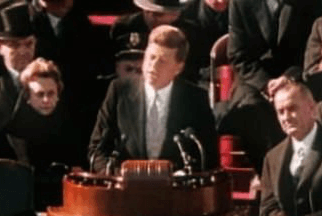Over two thousand years ago, Marcus Tullius Cicero devoted his life to a struggle to preserve the best of the Roman Republic – constitutional checks on power, the rule of law and, to a significant degree for the age, democracy and individual rights.
It’s all there in Cicero’s story – all of today’s battles for the same goals. Some of those battles were small and some large, some fought in court and some on the battlefield, but many were ultimately decided not by law or armies but by the power of public opinion.
And so it has been for the centuries since Cicero. A Star Wars sequel gave us a modern adage for the role of public opinion: Liberty dies with thunderous applause.
For those reasons, it’s particularly alarming to see the public’s opinion about the clear illegality of Governor JB Pritzker’s emergency stay-at-home orders, which is indifference.
That indifference is almost universal in Illinois’ press. Editorial condemnation of the order’s illegality has been almost nonexistent. A particularly sad example was an April 23 Chicago Tribune editorial. Flattening the curve is good, it said, so hurrah for extending the order. No mention of its illegality.
Same with the general public. Polling says 93% of Illinoisans approve Pritzker’s orders, including 75% who said they strongly approved. Illegality apparently is of no consequence.
Maybe the public thinks this is about some petty “technicality.” Maybe they think it doesn’t matter because the order is sensible.
But Pritzker’s orders are illegal, flagrantly so, and it matters. State authorization for the nearly unlimited power asserted under the orders limits them to 30 days. But Pritzker claims he can extend that to eternity simply by issuing successive 30-day orders forever, an arrogant, autocratic and untenable interpretation of the statute.
More importantly, the orders violate a range of of constitutional rights. No effort was made to confine the orders to legitimate public safety goals and tailor them to respect those rights. They reflect no rational basis for the lines between what is permissible and impermissible and, as they apply to many Illinoisans, the orders would not survive the strict scrutiny courts say the constitution demands insofar as they impair certain constitutional rights.
The arguments presented by the Illinois Attorney General in a memorandum defending the orders are cringeworthy:
- We’ve broken the 30-day limit before so we can do it again, goes one of those arguments. If the AG were right that past illegalities render laws unenforceable, there would be little left of any law, this being Illinois.
- Governors don’t need statutory authorization anyway, goes another argument, because they hold “supreme executive power.” Checks and balances mean nothing to the AG, apparently, nor do individual rights. President Donald Trump and Vice President Michael Pence were roundly ridiculed by the right and the left when they made the same claim regarding the presidency last month.
- The General Assembly hasn’t convened to cut off Pritzker’s emergency powers, says the AG, so there’s no issue. Sorry, but inaction by the legislature does not extend time limits written in statutes or suspend basic rights. That’s particularly important when the legislature is controlled by the governor’s allies, as now.
- The order will reduce infections and save lives – that basic argument runs throughout the AG’s memorandum. But that justification contradicts the initially stated justification for the order, which was not that it would save lives but merely spread infections out over a longer time frame to ensure hospitals were not overloaded. Illinois surpassed that goal weeks ago. More fundamentally, the AG’s office just doesn’t seem to get that Pritzker’s actions, whether wise or not, must be authorized by the General Assembly and reasonably tailored to fit the need. If the merits of Pritzker’s actions are so clear he could easily have reconvened the legislature to give him extended authority.
Pity us if those arguments are accepted and become precedent.
They were made in the appeal of a temporary restraining order issued on April 27 against extension of the first stay-at-home order. The lawsuit underlying the order is being refiled and probably will be appealed. We can only hope not only that the rule of law prevails but that the general public comes to understand what is at stake.
January will mark the 60th anniversary of John F. Kennedy’s inaugural address.

JFK’s Inaugural Address
The torch had passed, he said, to a new generation of Americans “unwilling to witness or permit the slow undoing of those human rights to which this nation has always been committed.”
The torch passed again since then. Will this generation permit what JFK’s would not?
Authored by Mark Glennon via Wirepoints.org,











0 Comments